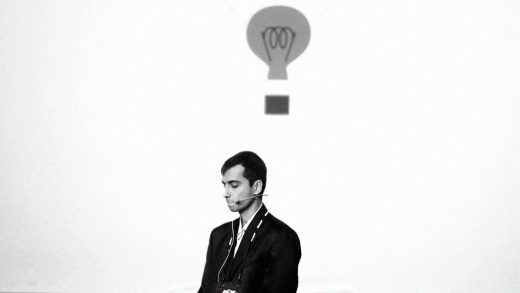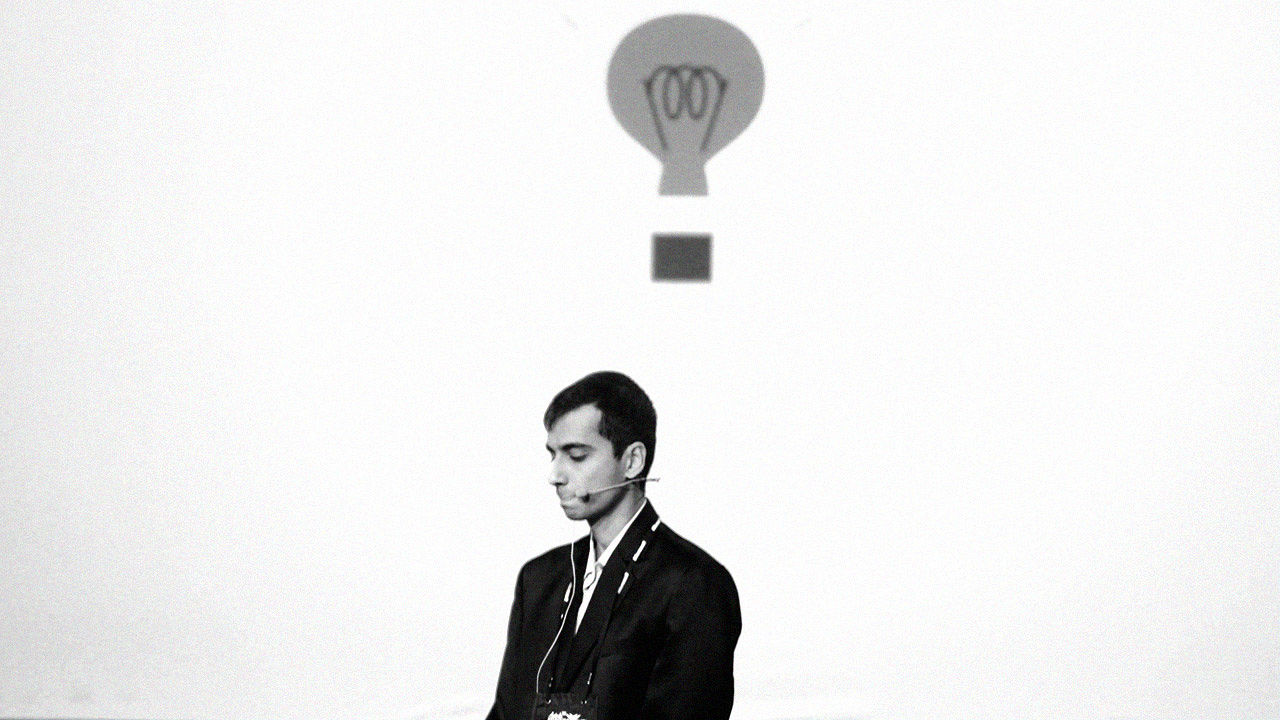4 Ways To Snap Into Speaking Mode Right Before Your Next Presentation
You’re hours away from that big presentation you’re scheduled to give, and you’re feeling anxious. Jittery. Your palms are already sweaty. The familiar recommendation to just take a deep breath may not quite cut it—and might actually hurt your delivery. So what can you do instead?
How And When “Self-Talk” Works
Research published last year in the Personality and Social Psychology Bulletin suggests that self-affirmation can help reduce some of the pressures of performing in high-stakes situations where you’re worried you’ll mess up.
“Anytime you have low expectations for your performance, University of Toronto psychologist Sonia Kang, who led the study, told ScienceNewsline, “you tend to sink down and meet those low expectations. Self-affirmation is a way to neutralize that threat.”
So what exactly should you tell yourself to calm down and take the stage as a confident, self-possessed speaker? For decades, many successful speakers have used a mantra inspired by the legendary image consultant Dorothy Sarnoff, who died in 2008 at the age of 94. She instructed her clients to say to themselves: “I’m glad I’m here. I’m glad you’re here. I care about you. I know what I know.”
It now seems that Sarnoff’s long-standing advice has some science to back it up. And during my years as a public speaker and speaking coach, I’ve adapted her mantra into these four statements:
- “I’m excited to speak.”
- “I appreciate my audience.”
- “I’m here to help.”
- “I know what I know.”
It may feel a little cheesy at first, but I’ve found that by repeating these lines with conviction can help tamp down nervous energy and rout it in a more positive direction. After all, speaking is a performance, and affirmations can help ready us for our role. Here’s how each of them works.
1. “I’m Excited To Speak”
The question typically reverberating through the terror-filled heads of nervous speakers is, “What the heck was I thinking when I agreed to do this?” That second-guessing will only make you more nervous, though.
In place of fear-generating thoughts, try what psychologists call “anxiety reappraisal.” This technique, adapted from cognitive behavioral therapy, basically involves telling yourself “I am excited” rather than “I am nervous.” Instead of asking yourself how you got into this fix, try rechanneling nervousness into excitement—simply by telling yourself that you’re pumped. It doesn’t matter that you really aren’t at first. Telling yourself that you are can help conjure the feelings of gratitude for the chance to share your thoughts that you’ll need in order to shine.
2. “I Appreciate My Audience”
Rather than visualizing your audience as an unsympathetic jury, be thankful people are ready and willing to hear what you have to say. Audiences almost always root for the speaker—they hope the person standing before them succeeds because they want to be informed and entertained by the message.
So instead of envisioning your listeners as a tough crowd to be won over, tell yourself you’ve been gifted the reverse scenario. Visualize your audience as being happily on your side—because they already are.
“I’m Here To Help”
It’s easier to share something than to prove something. You’re not a defense attorney delivering closing arguments in a capital case or a head of state seeking legislative approvals to declare war. See yourself instead as a solution-minded person, a first responder, stepping in to honestly help audience members solve a problem they’ve come to you for help with.
Repeating the sentence “I’m here to help” will shift your attention away from yourself and toward the audience and its needs. The word “attention” derives from the Latin attendere, meaning “to reach out.” When we reach out to others, self-conscious tensions are more likely to melt away.
“I Know What I Know”
To make this self-statement and really believe it before you step up to speak, you’ll need to first invest time preparing and practicing your presentation.
After the British politician Harold Macmillan made his first address to the House of Commons, Winston Churchill reportedly told him, “Harold, when you rose, you didn’t know what you were going to say. When you were speaking, you didn’t know what you were saying. And when you finished, you didn’t know what you had said.”
Don’t be like Macmillan. Once you know what you’re going to say and have practiced saying it, the heavy lifting is done. Simple preparedness relieves many of the pre-talk pressures—but only if you actually remind yourself how prepared you really are—allowing you to loosen up and glide into your delivery.
Or think of it this way: Beyoncé’s live performances include intricate choreography, yet her movements often appear effortless. That’s because she tirelessly practices for weeks before each show. She told CBS, “Part of the reason I rehearse so much and study everything is so I can completely let go and relax, so I’m not in my head and I’m confident.”
Fortunately, you don’t have to be Beyoncé to know your presentation forward and backward. You just need to remind yourself that you’ve already got everything you need to do well, so it’s time to let loose.
So while you should recite these affirmations to calm those jitters just before kicking of your next presentation, try practicing them weeks in advance. Get used to them ahead of time as you prepare. Then, in those delicate hours and minutes leading up to your big talk, repeat them with certitude and enthusiasm. Then take a breath, relax—and walk out and own the room.
Fast Company , Read Full Story
(21)











